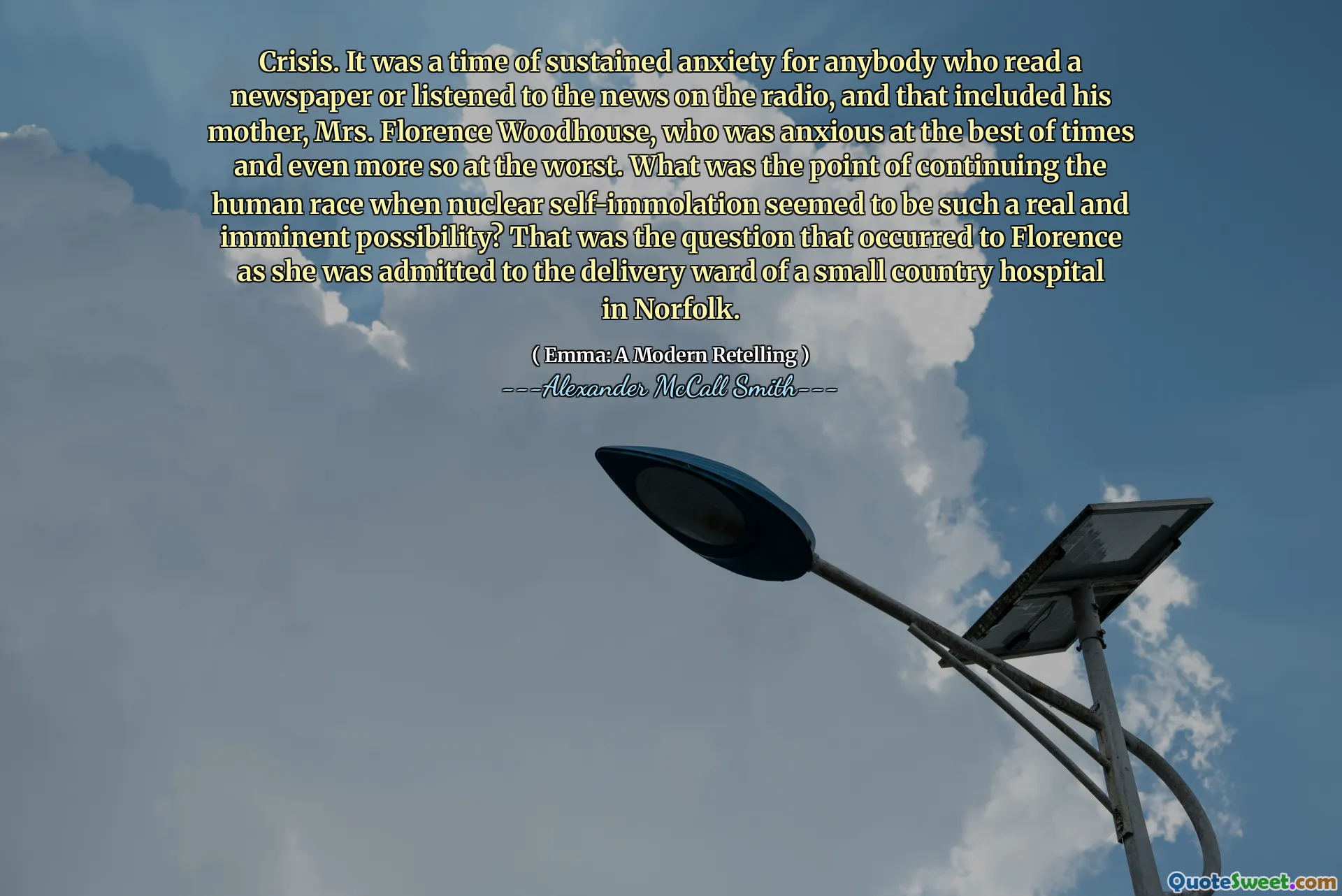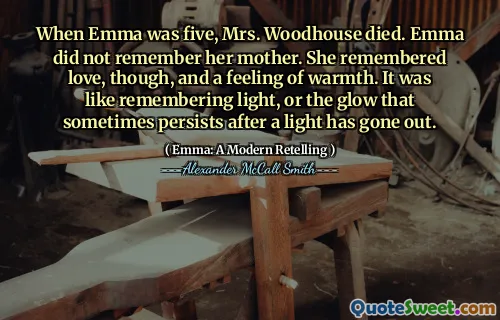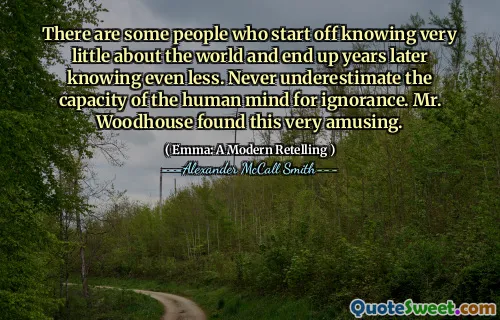
Crisis. It was a time of sustained anxiety for anybody who read a newspaper or listened to the news on the radio, and that included his mother, Mrs. Florence Woodhouse, who was anxious at the best of times and even more so at the worst. What was the point of continuing the human race when nuclear self-immolation seemed to be such a real and imminent possibility? That was the question that occurred to Florence as she was admitted to the delivery ward of a small country hospital in Norfolk.
The narrative captures a turbulent period marked by widespread fear, particularly during times of crisis as illustrated through the character of Mrs. Florence Woodhouse. She embodies the anxiety that permeated society, especially as the threat of nuclear disaster loomed large, leading to existential concerns about the future of humanity. This atmosphere of worry deeply affects her, especially as she prepares to bring a new life into a world filled with uncertainties.
As Florence enters the delivery ward of a small hospital, her thoughts reflect a profound struggle with the purpose of continuing life in such precarious circumstances. The weight of societal anxieties burdens her, prompting her to question the very essence of nurturing new generations amid fears of potential annihilation. This storyline emphasizes the emotional complexities faced by individuals during crises and the impact of global issues on personal experiences.








